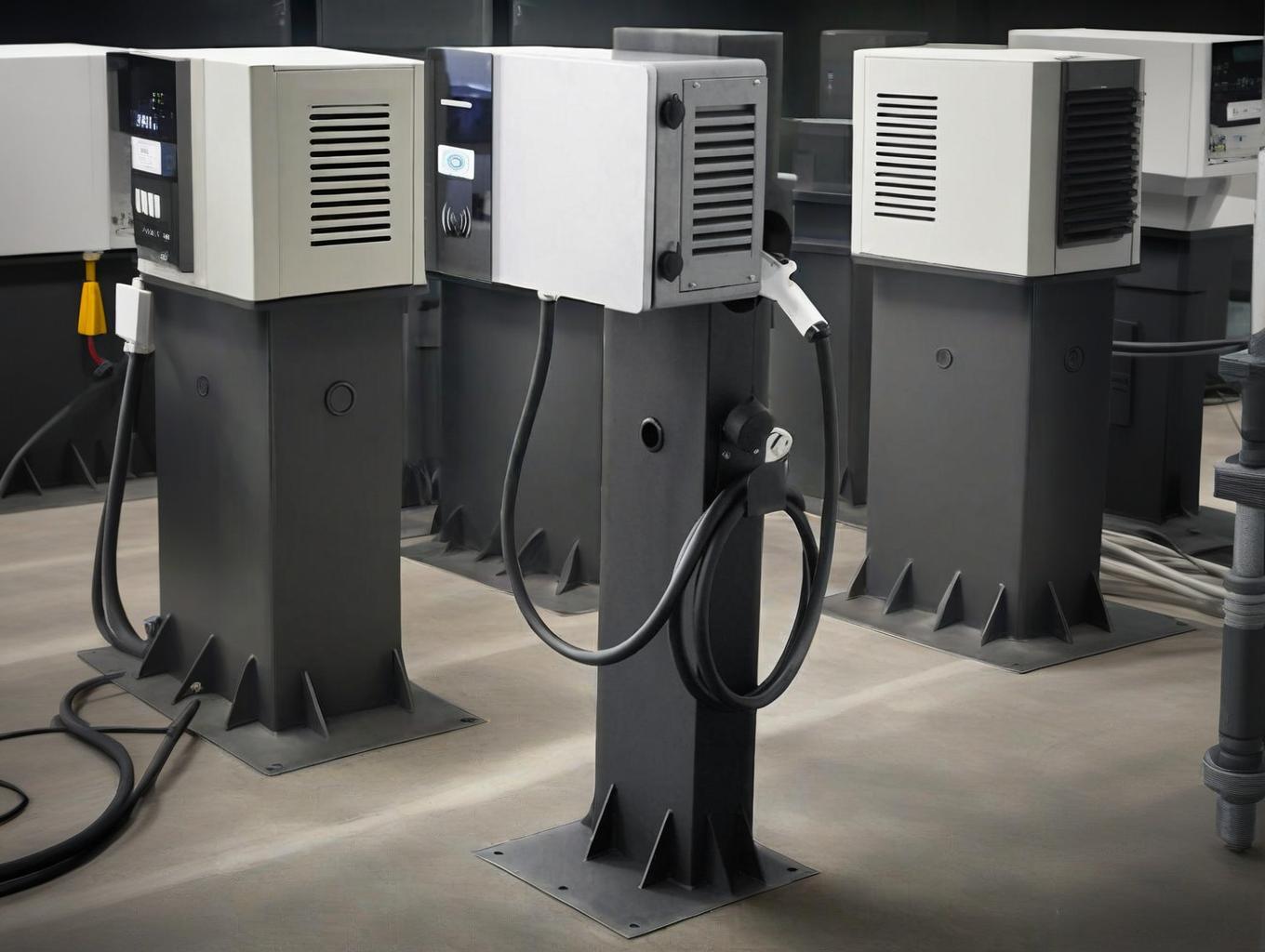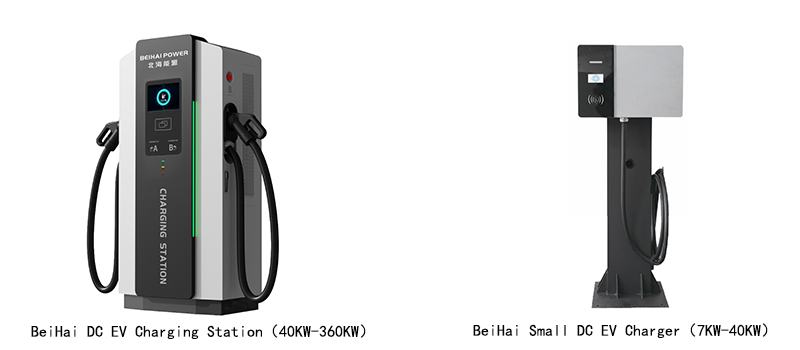Beihai Powder, a leader in innovative EV charging solutions, is proud to introduce the “20kw-40kw Compact DC Charger“– a game-changing solution designed to bridge the gap between slow AC charging and high-power DC fast charging. Engineered for flexibility, affordability, and speed, this charger empowers businesses and communities to embrace sustainable mobility without compromising efficiency.
Small DC chargers (20kW-40kW) offer significant advantages over traditional high-power DC chargers (120kW+). They are cost-effective and lower installation expenses due to minimal grid upgrades. Their moderate power consumption reduces operating costs, delivering a faster ROI (6-18 months). High-power chargers cost more and require extensive infrastructure and have longer ROI periods (2-5 years).
Small DC chargers are highly adaptable, operating on standard 220V-380V circuits and fitting compact spaces (0.5-1㎡). They deploy in 1-3 days, ideal for malls, offices, and hotels. High-power chargers need high-voltage circuits and take 1-3 months to install, limiting them to highways and dedicated stations.
With charging speeds of 20-50kW (100-250 km/h), small DC chargers suit small to medium EVs (≤80kWh) and use simple cooling systems, ensuring reliability and an 8-10-year lifespan. High-Power DC charging Station (120-350kW, 500-1000 km/h) cater to large EVs (≥100kWh) but rely on complex liquid cooling, increasing failure rates and reducing lifespan to 5-8 years.
Small DC chargers excel in commercial and community settings, offering affordable charging for fleets (e.g., taxis, logistics) and remote areas with limited grid capacity. They provide a user-friendly experience with 1-3-hour charging sessions, low fees, and high reliability. High-power chargers, while faster, are better for emergency top-ups but come with higher costs
Environmentally, small DC chargers align with urban energy policies, have low harmonic pollution, and integrate with solar/storage systems. High-power chargers often require industrial permits and can strain local grids.
In summary, small DC chargers are cost-effective, flexible, and sustainable, making them ideal for urban and commercial use, while high-power dc electric car chargers remain essential for high-traffic and long-distance scenarios.
Post time: Mar-14-2025






